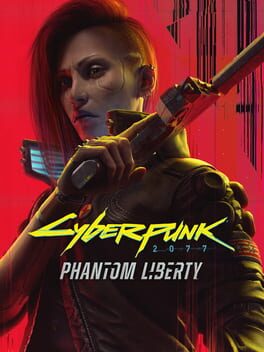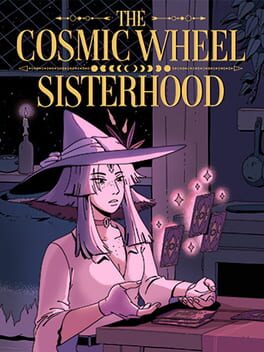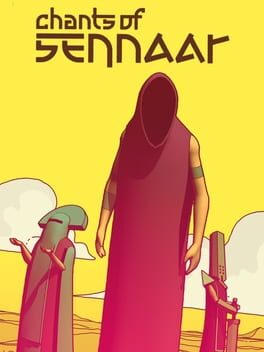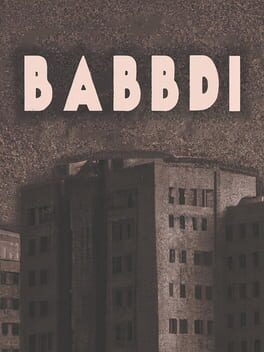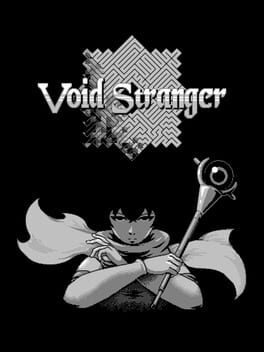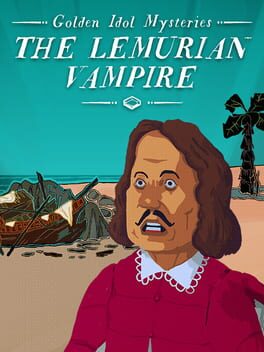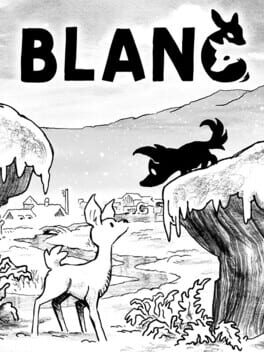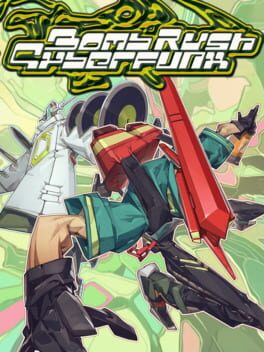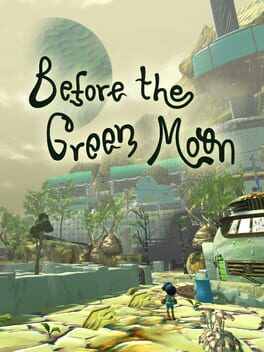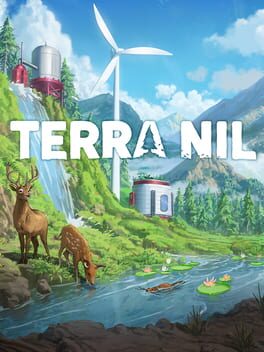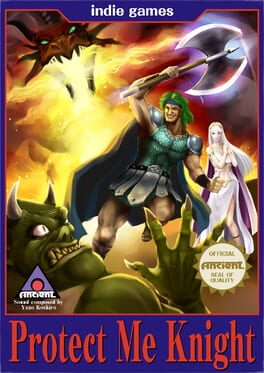Sci_Karate
BACKER
If you love Marvel Media and enjoy open-world checklist games, you'll love this one, and should go play it.
But:
The Fisher Price Devil May Cry gameplay is kneecapped by holding back mechanics and enemy variety until late in the plot.
Miles' half of the cast is charming - especially Rio - but I really fundamentally disliked Peter and Friends.
The game is simultaneously too much for a child in both content and difficulty, yet infantile in its thematics. Characters speak themes out loud so often and so explicitly that the text undercuts its own messaging.
There exists a world where this is a more focused game - greater linearity, confident writing, smoother pacing, characters with greater depth - but these games, like most current Marvel multimedia, take safe swings.
Everything here is solidly Nice, Good, Alright, Fine, and Functional - but ultimately unremarkable.
I enjoyed it the way I enjoy a decent pizza:
I ate it.
I had an okay time doing so.
In a few weeks, I will have forgotten about it entirely.
But:
The Fisher Price Devil May Cry gameplay is kneecapped by holding back mechanics and enemy variety until late in the plot.
Miles' half of the cast is charming - especially Rio - but I really fundamentally disliked Peter and Friends.
The game is simultaneously too much for a child in both content and difficulty, yet infantile in its thematics. Characters speak themes out loud so often and so explicitly that the text undercuts its own messaging.
There exists a world where this is a more focused game - greater linearity, confident writing, smoother pacing, characters with greater depth - but these games, like most current Marvel multimedia, take safe swings.
Everything here is solidly Nice, Good, Alright, Fine, and Functional - but ultimately unremarkable.
I enjoyed it the way I enjoy a decent pizza:
I ate it.
I had an okay time doing so.
In a few weeks, I will have forgotten about it entirely.
2023
Cocoon is an impeccably designed puzzle game with excellent art direction, but the narrative and the world felt lacking.
I had a great time blasting through the whole thing in one sitting, but I don't think this will be lingering with me for long -- certainly not in the way INSIDE did.
Somerville has all of Limbo/INSIDE's narrative design, but little of the gameplay design.
Cocoon has all of the gameplay design, but little of the narrative design.
Hopefully Geometric Interactive comes back in a few years with something that nails both.
I had a great time blasting through the whole thing in one sitting, but I don't think this will be lingering with me for long -- certainly not in the way INSIDE did.
Somerville has all of Limbo/INSIDE's narrative design, but little of the gameplay design.
Cocoon has all of the gameplay design, but little of the narrative design.
Hopefully Geometric Interactive comes back in a few years with something that nails both.
Cosmic Wheel Sisterhood is made of incredibly interesting game design ideas, but is occasionally let down by inconsistent writing quality.
That's not to say the writing is bad -- some of it is very good! -- but there are passages that felt like mid-2010s AO3 prose instead of Professional Videogame Writing, if that makes sense.
There's also some occasional tension between your own role-play and the game's text. Certain dialogue choices ask you to express explicit character traits (e.g. do you value Romance, Knowledge, or Power), but the player-character will often say things that directly contradict the character-writing you've done on your own.
With that said: if you think a cute wiccan lesbian visual novel deckbuilder is your sort of game, you should absolutely play this.
That's not to say the writing is bad -- some of it is very good! -- but there are passages that felt like mid-2010s AO3 prose instead of Professional Videogame Writing, if that makes sense.
There's also some occasional tension between your own role-play and the game's text. Certain dialogue choices ask you to express explicit character traits (e.g. do you value Romance, Knowledge, or Power), but the player-character will often say things that directly contradict the character-writing you've done on your own.
With that said: if you think a cute wiccan lesbian visual novel deckbuilder is your sort of game, you should absolutely play this.
2023
Chants of Sennar takes a good while to get going - the first few hours feel like an extended tutorial - but once it does, it's really excellent.
I think if this came out five years ago, it would have blown my mind, but in a post-Outer Wilds/Obra Dinn/Golden Idol/etc world, it's just Quite Good instead of Truly Incredible.
I think if this came out five years ago, it would have blown my mind, but in a post-Outer Wilds/Obra Dinn/Golden Idol/etc world, it's just Quite Good instead of Truly Incredible.
2022
2023
It is very difficult to say anything meaningful about Void Stranger without completely spoiling the experience.
I can at least give you this: Void Stranger does many incredible things that only video games can, and it does them more adeptly than anything else I have ever played.
It is among the very best of its medium.
I can at least give you this: Void Stranger does many incredible things that only video games can, and it does them more adeptly than anything else I have ever played.
It is among the very best of its medium.
Building an over-powered AC and sticking with it can break the game a little, but some self-imposed experimentation can keep the gameplay rewarding through the end.
Though there's also a fun power fantasy to be found in blasting through bosses with an immaculate build -- I highly recommend trying a lightweight quad-shotgun setup.
Also: do not be fooled the first time you see the credits roll!! you have not finished AC6 until you have played it thrice!!
Though there's also a fun power fantasy to be found in blasting through bosses with an immaculate build -- I highly recommend trying a lightweight quad-shotgun setup.
Also: do not be fooled the first time you see the credits roll!! you have not finished AC6 until you have played it thrice!!
2023
2023
A few loose complaints:
The simplification and softening of JSR's movement enables a far more fluid combo system, but loses a little something as well.
The combat design is middling at best - fistfights feel like wild button mashing, and impacts lack any sort of juice.
The entire game is structurally repetitive. Once you've completed just two zones, the pattern of gameplay becomes obvious, and subsequent mainline quests sometimes slide into tedium as a result.
The narrative is a little paint-by-numbers, and the writing is often thin.
With that out of the way - this game rocks. I had an incredible time. We need more games like this, and we need them badly. I would kill for a physical release of the soundtrack. I am going to replay every level for highscore achievements. I pray for a sequel.
The simplification and softening of JSR's movement enables a far more fluid combo system, but loses a little something as well.
The combat design is middling at best - fistfights feel like wild button mashing, and impacts lack any sort of juice.
The entire game is structurally repetitive. Once you've completed just two zones, the pattern of gameplay becomes obvious, and subsequent mainline quests sometimes slide into tedium as a result.
The narrative is a little paint-by-numbers, and the writing is often thin.
With that out of the way - this game rocks. I had an incredible time. We need more games like this, and we need them badly. I would kill for a physical release of the soundtrack. I am going to replay every level for highscore achievements. I pray for a sequel.
This review contains spoilers
In the beginning, there was nothing.
And then, there was Stardew Valley.
And so, the Cozy Game was born.
This is a narrative written and retold countless times in the minds and bodies of games-players the world over. It is the foundational text upon which a million pixelated seeds have been sown. It is a narrative written and retold by those with no memory.
Stardew’s popularity and immense financial success has spurred multitudinous imitators: the once-short lineage from Story of Seasons (nee Harvest Moon), to Rune Factory, to Stardew Valley, has now expanded to a monstrous family tree beyond comprehension.
And yet - the Farming Game / Life Sim remains a genre buried beneath a mountain of tropes. It is elaborated via a school of game design best equated to a bingo scorecard.
There is a fundamental strangeness to the homogeneity of farming games’ ‘cozy’' tone. It abstracts farming into something it is not -- into the kind of farming imagined by a gradeschool child.
I have a close family friend who worked on a farm in his younger years. He has taught me which animals sound most human when they cry for their mercy at the end.
Farming is difficult. It is unforgiving. It is unglamorous. It exists across an immense gulf from its beloved gaming facsimiles.
This has upsides. There are people in my life who have become avid players of games entirely because of the welcoming tonality of "Wholesome Games". Video games are a historically male space dominated by Gun Dudes with gravelly voices, and I'm glad to see a shift towards something more welcoming.
But another part of me feels like I'm watching an industry consuming and regurgitating the same video game ad infinitum. A cutesy farming ouroboros.
The Cozy Farming Game is to the early 2020s as the Brown Murder Shooter was to the early 2010s. Neither flavor of game is inherently bad. I enjoy partaking in both from time to time. But both reflect a failure to explore the depths of the medium.
The latter half of the last decade saw the brown shooter finally evolving. Games like Titanfall 2, Dusk, Doom Eternal, Wolfenstein: The New Order, and Spec Ops: The Line marked a shift in market tendency. The genre was in conversation with itself - for better or worse.
Regardless of whether or not these games were good, many games-players, me included, were happy to be playing something Similar but Different. A development upon genre; a genesis of new subgenre.
Before the Green Moon makes me excited about the future of the farming game. It is the first of its kind to make me feel something meaningful, that I will carry with me forever.
Its foundation is that of standard farming game fare - there are seeds to be sown, dead weeds to be mown, rocks to be excavated, and relationships to be navigated. But Before the Green moon appears immediately distinct from its peers from the moment the game begins.
Stardew Valley begins with your player-character escaping to the countryside to work on a farm of your own, inherited from your grandfather. You are absconding from a corporate office job where the fruits of your labor are enjoyed by uncaring C-level executives, so you can instead grow literal fruit to your own benefit.
Farming is portrayed as movement away from systemic capitalism; as an idyllic and self-sustaining method of enjoying one's life; as a movement towards a personable community that rejects the anonymity of city life. Every citizen of your small town is an individual whose inner life you are encouraged to understand for both narrative and mechanical benefit. You can fall in love. You can get married. The late game is an everlasting dream of love and small-town living. It portrays this world of cute chickens and fishing minigames by way of a vibrantly colored and super-nintendo-esque render.
Before the Green Moon is rendered in a blurry-textured N64-like manner, with blobby characters and sharp environmental vertices. You are not going to farm for fun - you are farming to get paid. This is not your farm - it is a corporate farm, in a ruined town, whose population is largely faceless. Some stranger used this farm before you, and you will never know so much as their name. It is overgrown with weeds. Only the bare minimum tools remain. It is the farm of someone who maybe once loved it, but who has since moved on and left it in a state of disrepair.
The planet is dying. It is a desiccated husk of what it once was, and the rich have already left it behind. They have learned to terraform, and live now on a Green Moon. Your planet still has some use, though: farming. Seeds are sent down a space elevator to be planted, and are then sent back up in exchange for money. More cynically, you could consider it company scrip. This scrip can then be exchanged for tools and resources, which are also sent via the elevator. Characters around you remark on occasion that, if the moon folk could ever learn to farm efficiently up there on their green rock, then they'll have no further use for those who still live below. In this way, the exchange of your crops for scrip allows you to survive on your barren world, but simultaneously funds the research that would ultimately doom its inhabitants.
You have come to town to farm. You have come to town to farm for money. You have come to town to farm for money so that you can buy a ticket to the moon, and leave it all behind.
What do you invest in that sort of transient life?
It is, in a way, a bit like going to college. From the moment you arrive, any friend you make will almost certainly one day be a person you Once Knew, but now know only through distant photos. Perhaps an occasional phonecall. Perhaps a rare visit, to reminisce upon the people you were then, but can scarcely recall. It is a place Between. A place After. A place Before. As all places are.
Before the Green Moon makes this far more poignant in that, in order to properly attend to your farm each day, you rarely have enough time to connect with the people around you. A daily communion, a moment fishing with a friend, a conversation with the strange kid out back, an afternoon hunting for chickens to bring home and care for - these moments are all there to be had, but there's so little space for them when you're busy watering tobacco plants.
Better yet - the game never forces you to leave. During your first week at the farm, you're told the price of a Ticket to The Moon. You do not ever have to buy this ticket. Even if you do, your only reward will be seeing the game end. You can spend every day talking with your neighbors and grilling up fish from the reservoir, forever, if you like. You can spend every dollar you make on chicken feed and bedroom decor. You can find love, and spend every day visiting your partner.
Even so - as you continue to rake in the moon-scrip, there will eventually come a moment when you realize you nearly have enough money for the ticket. You can look at the calendar, see the next scheduled day when the elevator will come and go, and realize that, if you want, you could leave along with it.
I had this moment, and considered staying, just for one more season. And then, in the coming in-game days, perhaps by coincidence, it seemed like I had started to exhaust the game's content. A new feeling set in - that there was nothing left for me here. That it was time to go.
So I bought the ticket.
I said my goodbyes to everyone I'd met. My in-game partner cried. They knew, deep down, that I would leave one day, but had hoped against hope that I would stay for them. I still had five more days - but every day, I'd receive the same dialogue from the other characters, over and over. I stopped planting seeds. I let my remaining crops die. I dumped my tools into storage. I left the farm as I'd found it: Dead. Abandoned. Overgrown. The last two days, I went to bed early. There was nothing to stay awake for.
On the final day, I ran through town one last time. I shuffled through the anonymous crowd of other moongoers. I made my way to the elevator. It was already evening.
A character who had gone missing earlier in the plot suddenly returned. No matter what I tried, I couldn't get them to trigger a farewell dialogue. I realized that it might not be possible to trigger both their return and their farewell dialogue on the same day. If I was right, I'd have to stay til the morning to say goodbye. I checked the calendar. I could stay a while longer, just to get closure with this one friend, my favorite character in the whole cast - but I would have to spend two weeks in an empty town of people with nothing to say to me; with a farm I'd already let wither.
I still don't know if there actually was a farewell dialogue to trigger or not. I'd rather never know. With just an hour left in the day, I rushed onto the elevator.
Once on the elevator, you get tucked away into a small room. The decor is sparse, grey, utilitarian. A single window gives a view out into space.
The elevator's ascent is slow. It is quiet. There is little to do but watch the planet fall away from view.
At the end of each in-game season, the town gathers to watch the green moon rise. A moon-viewing party. The cast of characters takes a moment to reflect. It is a quiet moment of companionship.
As the elevator approaches the peak of its ascent, the green moon falls into frame from above. Here, alone, in a sterile box a quarter-million miles above the earth, you hold a final moon-viewing party for one.
The moon fills the frame. Its atmosphere is as thick, green, and opaque as it was from the earth. And then, having never seen the moon's surface, and without ever learning what waits for you there, the credits roll.
You've already seen everything the game has to offer you. It's offered up everything it had ever promised: the digital facsimile of a farm, of a town, of a home, of a ruined wasteland, of where you left your friends behind, where you lived back then, in a different time, Before the Green Moon.
And then, there was Stardew Valley.
And so, the Cozy Game was born.
This is a narrative written and retold countless times in the minds and bodies of games-players the world over. It is the foundational text upon which a million pixelated seeds have been sown. It is a narrative written and retold by those with no memory.
Stardew’s popularity and immense financial success has spurred multitudinous imitators: the once-short lineage from Story of Seasons (nee Harvest Moon), to Rune Factory, to Stardew Valley, has now expanded to a monstrous family tree beyond comprehension.
And yet - the Farming Game / Life Sim remains a genre buried beneath a mountain of tropes. It is elaborated via a school of game design best equated to a bingo scorecard.
There is a fundamental strangeness to the homogeneity of farming games’ ‘cozy’' tone. It abstracts farming into something it is not -- into the kind of farming imagined by a gradeschool child.
I have a close family friend who worked on a farm in his younger years. He has taught me which animals sound most human when they cry for their mercy at the end.
Farming is difficult. It is unforgiving. It is unglamorous. It exists across an immense gulf from its beloved gaming facsimiles.
This has upsides. There are people in my life who have become avid players of games entirely because of the welcoming tonality of "Wholesome Games". Video games are a historically male space dominated by Gun Dudes with gravelly voices, and I'm glad to see a shift towards something more welcoming.
But another part of me feels like I'm watching an industry consuming and regurgitating the same video game ad infinitum. A cutesy farming ouroboros.
The Cozy Farming Game is to the early 2020s as the Brown Murder Shooter was to the early 2010s. Neither flavor of game is inherently bad. I enjoy partaking in both from time to time. But both reflect a failure to explore the depths of the medium.
The latter half of the last decade saw the brown shooter finally evolving. Games like Titanfall 2, Dusk, Doom Eternal, Wolfenstein: The New Order, and Spec Ops: The Line marked a shift in market tendency. The genre was in conversation with itself - for better or worse.
Regardless of whether or not these games were good, many games-players, me included, were happy to be playing something Similar but Different. A development upon genre; a genesis of new subgenre.
Before the Green Moon makes me excited about the future of the farming game. It is the first of its kind to make me feel something meaningful, that I will carry with me forever.
Its foundation is that of standard farming game fare - there are seeds to be sown, dead weeds to be mown, rocks to be excavated, and relationships to be navigated. But Before the Green moon appears immediately distinct from its peers from the moment the game begins.
Stardew Valley begins with your player-character escaping to the countryside to work on a farm of your own, inherited from your grandfather. You are absconding from a corporate office job where the fruits of your labor are enjoyed by uncaring C-level executives, so you can instead grow literal fruit to your own benefit.
Farming is portrayed as movement away from systemic capitalism; as an idyllic and self-sustaining method of enjoying one's life; as a movement towards a personable community that rejects the anonymity of city life. Every citizen of your small town is an individual whose inner life you are encouraged to understand for both narrative and mechanical benefit. You can fall in love. You can get married. The late game is an everlasting dream of love and small-town living. It portrays this world of cute chickens and fishing minigames by way of a vibrantly colored and super-nintendo-esque render.
Before the Green Moon is rendered in a blurry-textured N64-like manner, with blobby characters and sharp environmental vertices. You are not going to farm for fun - you are farming to get paid. This is not your farm - it is a corporate farm, in a ruined town, whose population is largely faceless. Some stranger used this farm before you, and you will never know so much as their name. It is overgrown with weeds. Only the bare minimum tools remain. It is the farm of someone who maybe once loved it, but who has since moved on and left it in a state of disrepair.
The planet is dying. It is a desiccated husk of what it once was, and the rich have already left it behind. They have learned to terraform, and live now on a Green Moon. Your planet still has some use, though: farming. Seeds are sent down a space elevator to be planted, and are then sent back up in exchange for money. More cynically, you could consider it company scrip. This scrip can then be exchanged for tools and resources, which are also sent via the elevator. Characters around you remark on occasion that, if the moon folk could ever learn to farm efficiently up there on their green rock, then they'll have no further use for those who still live below. In this way, the exchange of your crops for scrip allows you to survive on your barren world, but simultaneously funds the research that would ultimately doom its inhabitants.
You have come to town to farm. You have come to town to farm for money. You have come to town to farm for money so that you can buy a ticket to the moon, and leave it all behind.
What do you invest in that sort of transient life?
It is, in a way, a bit like going to college. From the moment you arrive, any friend you make will almost certainly one day be a person you Once Knew, but now know only through distant photos. Perhaps an occasional phonecall. Perhaps a rare visit, to reminisce upon the people you were then, but can scarcely recall. It is a place Between. A place After. A place Before. As all places are.
Before the Green Moon makes this far more poignant in that, in order to properly attend to your farm each day, you rarely have enough time to connect with the people around you. A daily communion, a moment fishing with a friend, a conversation with the strange kid out back, an afternoon hunting for chickens to bring home and care for - these moments are all there to be had, but there's so little space for them when you're busy watering tobacco plants.
Better yet - the game never forces you to leave. During your first week at the farm, you're told the price of a Ticket to The Moon. You do not ever have to buy this ticket. Even if you do, your only reward will be seeing the game end. You can spend every day talking with your neighbors and grilling up fish from the reservoir, forever, if you like. You can spend every dollar you make on chicken feed and bedroom decor. You can find love, and spend every day visiting your partner.
Even so - as you continue to rake in the moon-scrip, there will eventually come a moment when you realize you nearly have enough money for the ticket. You can look at the calendar, see the next scheduled day when the elevator will come and go, and realize that, if you want, you could leave along with it.
I had this moment, and considered staying, just for one more season. And then, in the coming in-game days, perhaps by coincidence, it seemed like I had started to exhaust the game's content. A new feeling set in - that there was nothing left for me here. That it was time to go.
So I bought the ticket.
I said my goodbyes to everyone I'd met. My in-game partner cried. They knew, deep down, that I would leave one day, but had hoped against hope that I would stay for them. I still had five more days - but every day, I'd receive the same dialogue from the other characters, over and over. I stopped planting seeds. I let my remaining crops die. I dumped my tools into storage. I left the farm as I'd found it: Dead. Abandoned. Overgrown. The last two days, I went to bed early. There was nothing to stay awake for.
On the final day, I ran through town one last time. I shuffled through the anonymous crowd of other moongoers. I made my way to the elevator. It was already evening.
A character who had gone missing earlier in the plot suddenly returned. No matter what I tried, I couldn't get them to trigger a farewell dialogue. I realized that it might not be possible to trigger both their return and their farewell dialogue on the same day. If I was right, I'd have to stay til the morning to say goodbye. I checked the calendar. I could stay a while longer, just to get closure with this one friend, my favorite character in the whole cast - but I would have to spend two weeks in an empty town of people with nothing to say to me; with a farm I'd already let wither.
I still don't know if there actually was a farewell dialogue to trigger or not. I'd rather never know. With just an hour left in the day, I rushed onto the elevator.
Once on the elevator, you get tucked away into a small room. The decor is sparse, grey, utilitarian. A single window gives a view out into space.
The elevator's ascent is slow. It is quiet. There is little to do but watch the planet fall away from view.
At the end of each in-game season, the town gathers to watch the green moon rise. A moon-viewing party. The cast of characters takes a moment to reflect. It is a quiet moment of companionship.
As the elevator approaches the peak of its ascent, the green moon falls into frame from above. Here, alone, in a sterile box a quarter-million miles above the earth, you hold a final moon-viewing party for one.
The moon fills the frame. Its atmosphere is as thick, green, and opaque as it was from the earth. And then, having never seen the moon's surface, and without ever learning what waits for you there, the credits roll.
You've already seen everything the game has to offer you. It's offered up everything it had ever promised: the digital facsimile of a farm, of a town, of a home, of a ruined wasteland, of where you left your friends behind, where you lived back then, in a different time, Before the Green Moon.
2000
2023
The first half is a nice, chill-vibes podcastgame that you can hang out with as its mechanics unfold.
The (optional) second half adds small twists that demand a tiny bit of thinking.
Neither is wholly captivating, but Terra Nil is, as a whole, a nice time.
Unless you're specifically interested in Terra Nil for its theme, I'd recommend trying Dorfromantik instead. It is similar but has more robust game design.
The (optional) second half adds small twists that demand a tiny bit of thinking.
Neither is wholly captivating, but Terra Nil is, as a whole, a nice time.
Unless you're specifically interested in Terra Nil for its theme, I'd recommend trying Dorfromantik instead. It is similar but has more robust game design.
2010
The early-2010s indie scene was packed to the brim with fun, pick-up-and-play splitscreen games.
At the time, it felt like there were too many of them. Perhaps there were. Now, I miss them - it's rare to see that sort of game anymore. I suppose farming games are to this moment (the early 2020s) as splitscreen games were to then.
A select handful of those then-plentiful splitscreen titles have remained in the games-player zeitgeist. The remembered relics of an older era: Castle Crashers, Speedrunners, et cetera.
It's tragic that Mamotte Knight remains a forgotten, under-appreciated title, trapped on the Xbox 360. This is its first Backloggd review, and that's a shame. I'm aware there are sequels for the Switch and 3DS, but I think it's important to preserve every work in this medium, even if it's later made arguably obsolete.
If you can get it running in an emulator, or on a modded Xbox 360, you should absolutely give this one a spin.
It's a fun, clean NES throwback from a time when that was still a novel aesthetic. You can complete a run in about forty minutes. The music is composed by Yuzo Koshiro.
It expertly blends elements of tower defense and beat-em-up gameplay with light RPG elements a la Guardian Heroes.
The constant management of the princess' placement whilst fending off waves of enemies feels football-like when played with a friend. (The princess is the football. The enemies are trying to tackle her. You are trying to murder them via blunt force trauma.)
I am out of things to say and am now going to play it again. I leave you with this:
I will play Mamotte Knight with many different people over many months, or perhaps many years, and I will imbue it with a meaning that is personal and precious and known only to me. It is this act, of handing over a little piece of ourselves to a game, of allowing it to forever hold a portion of our memories and our pasts, that makes splitscreen gaming meaningful. It turns these games into time capsules of infinite value.
Also, the princess shouts "Defeat F@*#in Goblins” on the title screen, which rocks.
At the time, it felt like there were too many of them. Perhaps there were. Now, I miss them - it's rare to see that sort of game anymore. I suppose farming games are to this moment (the early 2020s) as splitscreen games were to then.
A select handful of those then-plentiful splitscreen titles have remained in the games-player zeitgeist. The remembered relics of an older era: Castle Crashers, Speedrunners, et cetera.
It's tragic that Mamotte Knight remains a forgotten, under-appreciated title, trapped on the Xbox 360. This is its first Backloggd review, and that's a shame. I'm aware there are sequels for the Switch and 3DS, but I think it's important to preserve every work in this medium, even if it's later made arguably obsolete.
If you can get it running in an emulator, or on a modded Xbox 360, you should absolutely give this one a spin.
It's a fun, clean NES throwback from a time when that was still a novel aesthetic. You can complete a run in about forty minutes. The music is composed by Yuzo Koshiro.
It expertly blends elements of tower defense and beat-em-up gameplay with light RPG elements a la Guardian Heroes.
The constant management of the princess' placement whilst fending off waves of enemies feels football-like when played with a friend. (The princess is the football. The enemies are trying to tackle her. You are trying to murder them via blunt force trauma.)
I am out of things to say and am now going to play it again. I leave you with this:
I will play Mamotte Knight with many different people over many months, or perhaps many years, and I will imbue it with a meaning that is personal and precious and known only to me. It is this act, of handing over a little piece of ourselves to a game, of allowing it to forever hold a portion of our memories and our pasts, that makes splitscreen gaming meaningful. It turns these games into time capsules of infinite value.
Also, the princess shouts "Defeat F@*#in Goblins” on the title screen, which rocks.

